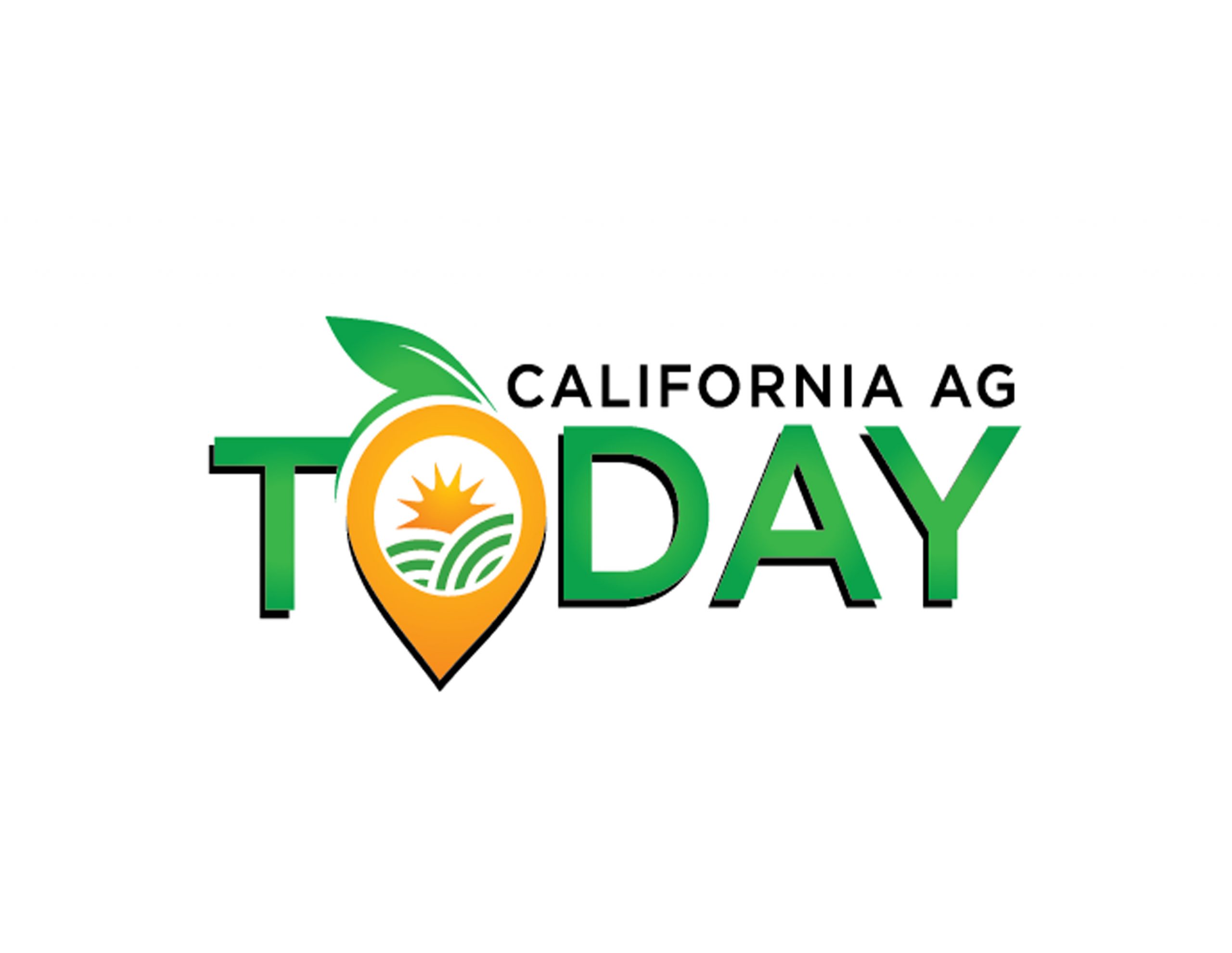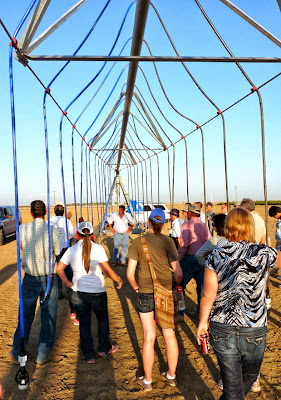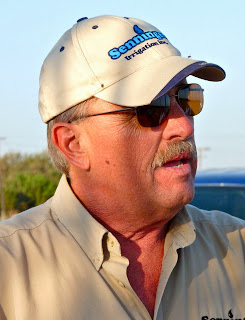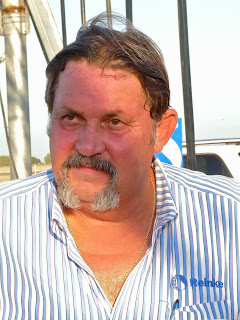
Deficit Irrigation Project Underway
Project Data Should be Big Help To Growers
By Patrick Cavanaugh, Editor
A new and important research project is underway at the UC West Side Research and Education Center in Five Points, which could eventually point the way for growers of annual crops to stay in business with limited water.
The research features a $100,000 center pivot machine donated by Reinke Manufacturing.
 |
| Crowd listens to Rich Hanshew with Reinke Mfg. |
The plots will be pie-shaped. Different nozzles on the machine will handle distinct irrigation regimes. The trial will be replicated with various types of treatments within the circular system.
To begin with, the center pivot will irrigate an 8-acre half-circle of alfalfa and an 8-acre half-circle of cotton. All aspects of production – including irrigation system performance, weed control, fertilization, soil salinity and economic viability – will be monitored by a diverse team of researchers from UC Cooperative Extension, Fresno State University and UC Davis, plus farmer cooperators and industry members.
“By controlling the speed of the pivot, pie-shaped segments will get either full irrigation, three-quarters of the full amount or about half of the full irrigation quantity,” said Jeff Mitchell UC Cooperative Extension specialist in the Department of Plant Sciences at UC Davis.
 |
| Dan Schueler with Senninger Irrigtion |
Dan Schueler, southwest district manager for Senninger Irrigation (who has donated the nozzles) spoke about the increased nozzle drops on the machine with many different flow rates. “This is a three span machine, and it has nearly 400 drop nozzles. Many of these nozzles have been used since the early 1980s in Texas and other areas that are chronically water-short,” Schueler said. “And we have some data that can be pulled from those areas.”
“We hope to learn from this machine that we can disseminate back to growers. We can quickly change out sprinkler packages to get the data we may need as the machine is moving around the field,” Schueler said. “We are going to be able to show growers different nozzles to get different things done, and we are thankful that UC has stepped up with this project and opened up the space for us to do it.”
“This machine will give us a tremendous amount of flexibility from a sprinkler package and application rate point of view,” Schueler said. “We know that we need to put on as much water as we can without exceeding the intake rate of a particular soil type. Whether you are irrigating a light or heavy soil, we need to gather the information more quickly in California.”
“Unless we get an unbelievable rain year, next year is going to be a big deficit irrigation year, and it will be ugly,” said Schueler. “So we need double or triple nozzle packages to allow us to start the year with a certain amount of water and finish with much less water available,” Schueler said.
“Growers in other areas of the country, such as the mid-west and Texas, are farming with deficit irrigation and getting good crops,” Schueler noted. “With our serious water situation, growers in California will have to turn to reduced irrigation and still produce a profitable crop. And we want to bring this information to the grower through the University of California.”
 |
| Rick Hanshew with Reinke Mfg. |
Rick Hanshew, southwest territory manager for Reinke Manufacturing. “The equipment has the most up-to-date technology available. It will have a touch screen panel and the Ontrac system on the unit. Ontrac features a remote communications control, so it’s easy to view the machine’s operation on a computer. Ontrac can also send an alert to a smart phone in case the machine were to shut down,” said Hanshew. “The machine, as it moves through the field can be sped up or slowed down and with different nozzles we can run some good deficit irrigation studies.”
“We are looking toward the future here,” said Hanshew. “I have been selling pivots for 15 years, the last six, I have been a manufacturer rep for Reinke, and have sold pivots to growers from Lancaster to Merced. One of the first things growers ask is to show them some data from California. We have a lot of data from the Mid-West but not much from California, and I so happy to have this research in place at the West Side Research and Education Center.”
“Hopefully we are going to get some great information from this research,” said Hanshew. “These pivots are very versatile and can be used in many different crops, such as cotton and many forage crops We have tomato growers that have been able to get a decent crop off of the system. Even the processor said it was very acceptable,” Hanshew noted. “So it is possible.”
Hanshew said his target is all the acres on flood irrigation in California. “When you use a pivot versus flood you use only 60 percent of the water,” he noted.








